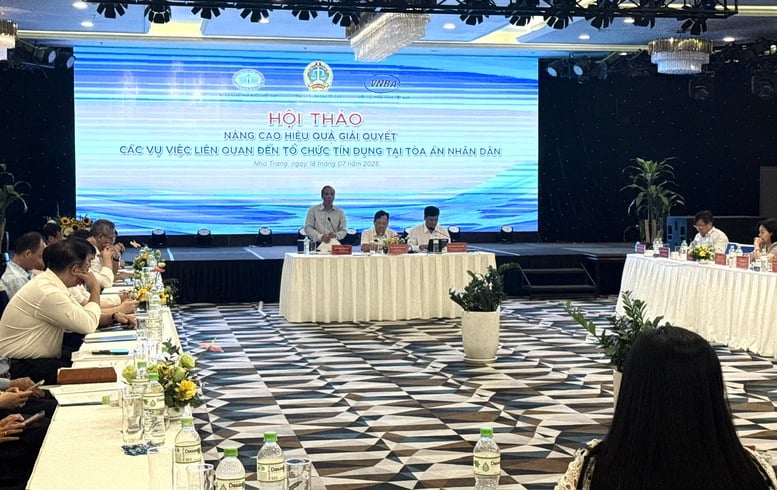
Workshop "Improving the effectiveness of resolving cases related to credit institutions at People's Courts" - Photo: VGP/HT
Typical difficulties in practice and proposed solutions
At the workshop "Improving the efficiency of resolving cases related to credit institutions at the People's Court", from the perspective of commercial banks, Ms. Phan Thi Hong Van - Deputy Director of Legal and Compliance Department of VietinBank highly appreciated the coordination of the People's Court, the People's Procuracy and the enforcement agency in the debt collection process. This support helps speed up the progress and improve efficiency. In addition, legal documents and practical experience are the foundation for banks to adjust procedures and minimize risks.
Speaking frankly at the workshop, representatives of banks such as BIDV and MB reflected on many difficulties, especially in the appraisal and verification of collateral assets. According to regulations, the court conducts appraisal during the trial, but the enforcement agency continues to measure and verify at a later stage, causing time extension and additional costs. Some cases were even canceled and retried, leading to multiple appraisals.
"The appraisal cost ranges from VND5 to VND15 million per property, depending on the court. This causes financial pressure, especially for large-scale projects such as apartment buildings. Verifying personal assets such as cars and machinery is also difficult because the property owners do not cooperate, causing the bank to be required to remove these assets from the lawsuit file," said a BIDV representative.
"The litigation time for many cases lasts 3-4 years to complete at first instance, causing large late payment interest. In some cases, banks have to suffer losses due to objective factors such as epidemics. This increases credit risks and operating costs," said an MB representative.
Speaking to the Government Electronic Newspaper, Mr. Pham Toan Vuong - Chairman of the Vietnam Banking Association said: The Association regularly listens, collects and reflects the difficulties of member organizations in handling disputes. Many cases, although not common, are reviewed and shared experiences are drawn to avoid recurrence.
From Agribank's perspective, Mr. Pham Toan Vuong said: This bank has been operating nationwide for nearly 40 years - handling many civil dispute cases, with half at the litigation stage and half at the enforcement stage.
"If the procedures and legal perspectives are removed, the processing will be faster, reducing pressure on both banks and the judiciary. From practice, Agribank has also learned lessons in implementing loans, tightening the appraisal process, avoiding the risk of disputes. The Banking Association notes that credit institutions need to be more proactive in managing loans, controlling records and especially handling mortgage issues. It is necessary to limit errors from the bank side that create loopholes for borrowers to take advantage of, delay debt repayment obligations, and increase the burden on the court system. A positive point is that the revised Law on Credit Institutions has added a mechanism for seizing secured assets. Agribank estimates that there are about 150,000 mortgaged assets that can be processed thanks to this provision. When the sub-law guidance documents are issued and applied synchronously, the bad debt processing process is expected to be transparent and significantly shortened," Mr. Pham Toan Vuong shared.
Legal principles and a consistent approach
The representative of the Ministry of Justice emphasized that the 2015 Civil Code ensures a balance between rights and obligations, avoiding abuse. Articles 9 and 10 stipulate restrictions on civil rights to protect public interests and the rights of related parties. For example, if the borrower changes his/her place of residence without notice, the court may apply appropriate remedies.
The law also protects bona fide third parties through regulations on registration of secured transactions. The person whose name appears on the legal document is considered the subject with the right to dispose, and the bona fide transactor has his or her rights protected.
The Ministry of Justice clearly distinguishes between "Security Contracts" and "Security Measures". A security contract is an agreement, while a security measure (such as a mortgage or pledge) is an enforcement tool. The contract remains valid when notarized or authenticated, even if the security measure has not been registered. Failure to register only affects the right to priority payment, and does not invalidate the contract. Some court decisions declaring mortgage contracts invalid for this reason are considered incorrect.
On the other hand, Judge Bui Hong Hanh (Economic Court, Ho Chi Minh City People's Court) said that banks need to proactively prepare documents and evidence right from the loan application appraisal stage, be transparent about interest rates and the notification process to customers. Doing these steps well will shorten the dispute resolution process and reduce pressure on the Court.
The State Bank of Vietnam leaders noted: Calculating interest on unpaid interest is necessary. Interest is a fee for using capital; banks mobilize from individuals and organizations and still have to pay interest to depositors. If customers are late in paying, they must pay late interest according to Articles 357 and 468 of the Civil Code, at a rate not exceeding 20%/year.
Deputy Governor Doan Thai Son also noted that Circular 39/2016/TT-NHNN stipulates the order of debt collection: when the debt is overdue, the principal must be collected first, then the interest; in the interest, the overdue interest must be collected first, then the interest on time. These regulations aim to ensure transparency and limit the occurrence of overlapping interest.
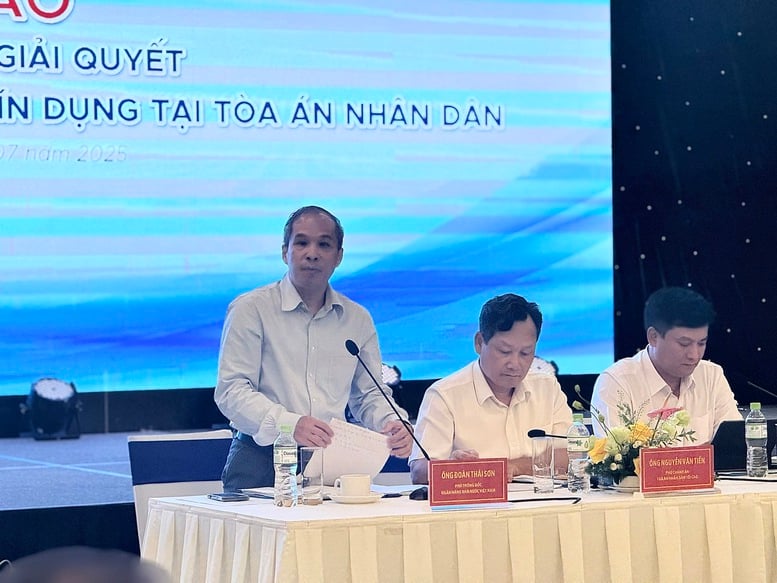
Deputy Governor of the State Bank Doan Thai Son speaks at the Workshop - Photo: VGP/HT
Deputy Governor of the State Bank Doan Thai Son affirmed: Building an effective credit dispute resolution mechanism brings benefits to all parties, especially banks. Banks' capital mainly comes from deposit mobilization, so banks must ensure repayment to depositors. Therefore, if disputes are handled quickly, capital will be recovered promptly, helping to protect depositors' rights and maintain the flow of lending capital to continue circulating in the economy.
In addition, an effective resolution mechanism also facilitates a reduction in lending interest rates, which benefits both businesses and the economy. When banks do not have to spend a lot of resources on dispute resolution, operating costs are reduced, and interest rates can be adjusted more flexibly. This contributes to promoting production, business and economic growth.
Furthermore, the SBV leader recommended: Credit institutions need to accept the recommendations of the court, especially from the judges directly handling the case, to adjust internal procedures and limit the occurrence of disputes. The Banking Association will coordinate with the Supreme People's Court to review, propose recommendations and support the completion of legal regulations.
In addition, a more comprehensive approach is needed to regulations related to property – the area where most disputes arise. If the legal system on property registration and handling is completed, the number of disputes will decrease, and judges will have a full basis to handle them quickly and transparently.
Deputy Chief Justice of the Supreme People's Court Nguyen Van Tien affirmed that the five key factors in resolving credit disputes include: secured loans, secured transactions and scope of security, interest rates, third parties, and evidence handling. Mr. Nguyen Van Tien emphasized the need for close coordination between banks, associations, and courts to standardize legal awareness and avoid different understandings from each side.
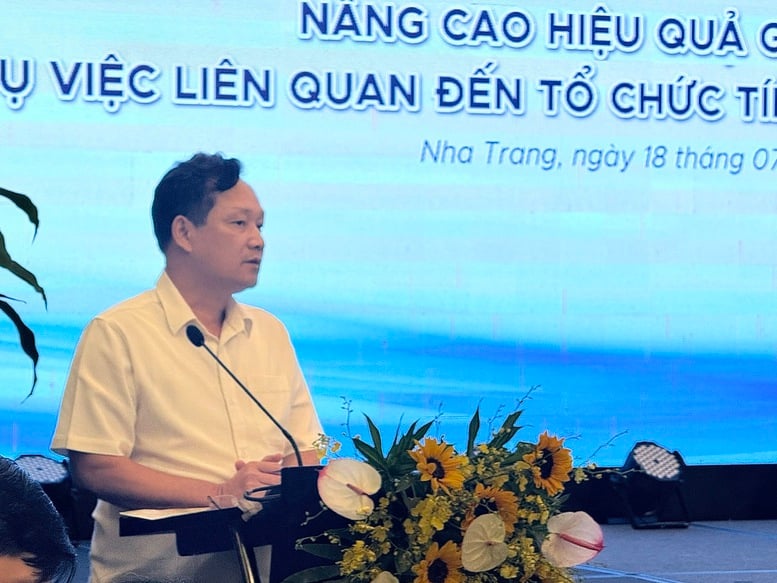
Deputy Chief Justice of the Supreme People's Court Nguyen Van Tien speaks at the Workshop - Photo: VGP/HT
Mr. Nguyen Van Tien proposed classifying the problems at the workshop into three groups: immediate professional answers; issuing guidance resolutions; and recommending law amendments. Mr. Tien also suggested that the State Bank and the Banking Association regularly coordinate with the Supreme Court.
In addition, the Supreme Court is preparing two important draft laws to submit to the National Assembly: the amended Bankruptcy Law and the Law on Specialized Courts at the International Financial Center. These laws will have a major impact on banking activities, especially in the handling of secured assets and disputes arising at the financial centers located in Ho Chi Minh City and Da Nang.
"The synchronous coordination between banks, management agencies and the court system is expected to remove obstacles, shorten the time to handle bad debts, improve the quality of trials and create a more transparent and effective credit environment for the economy," the representative of the Supreme People's Court emphasized.
Mr. Minh
Source: https://baochinhphu.vn/cac-ngan-hang-phoi-hop-chat-che-voi-toa-an-go-vuong-xu-ly-no-xau-10225071819060085.htm



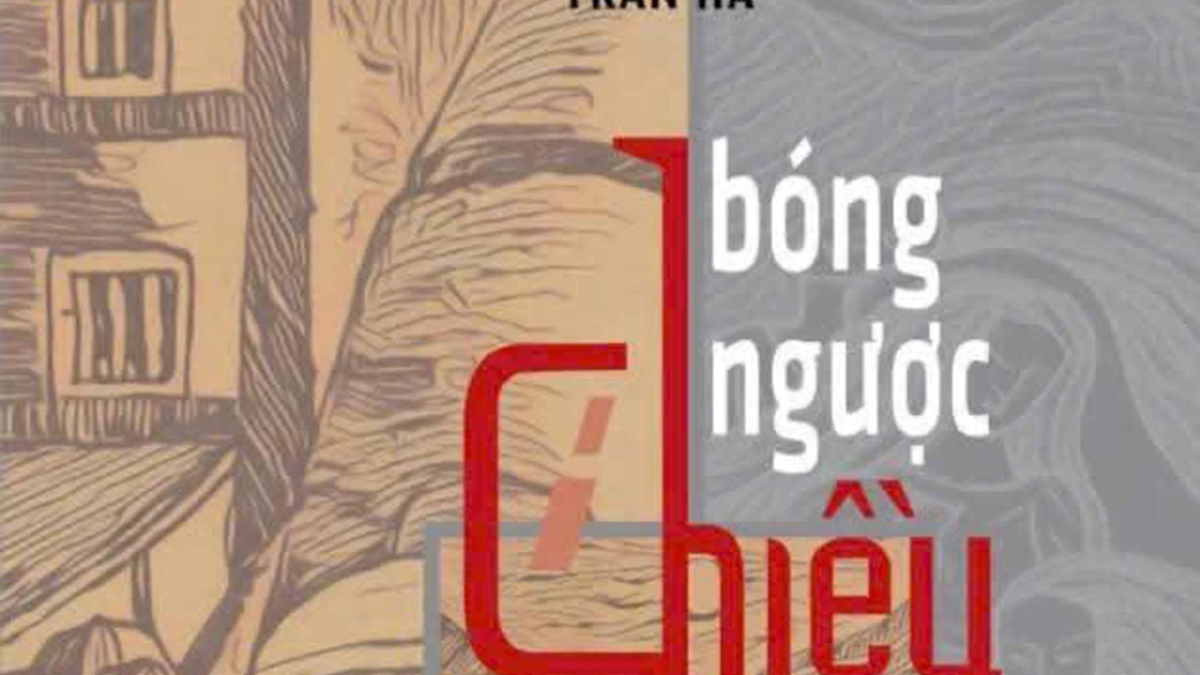

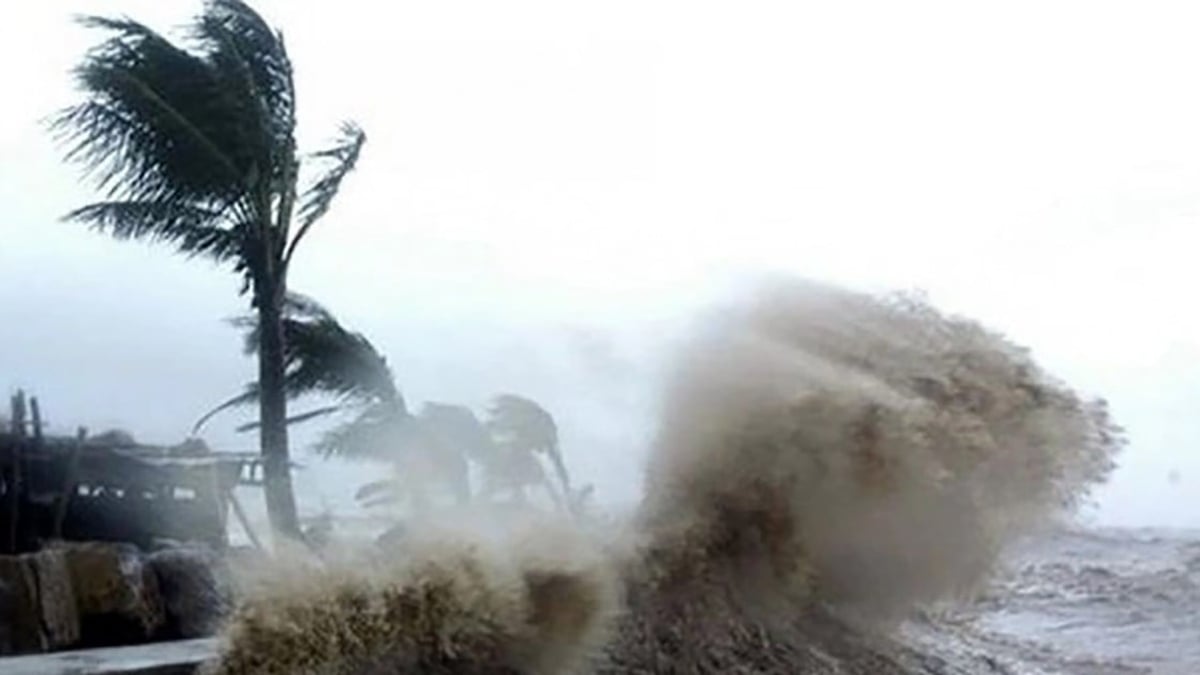





![[Video] More than 100 universities announce tuition fees for the 2025–2026 academic year](https://vphoto.vietnam.vn/thumb/1200x675/vietnam/resource/IMAGE/2025/7/18/7eacdc721552429494cf919b3a65b42e)


















































































![[Infographic] In 2025, 47 products will achieve national OCOP](https://vphoto.vietnam.vn/thumb/402x226/vietnam/resource/IMAGE/2025/7/16/5d672398b0744db3ab920e05db8e5b7d)





Comment (0)